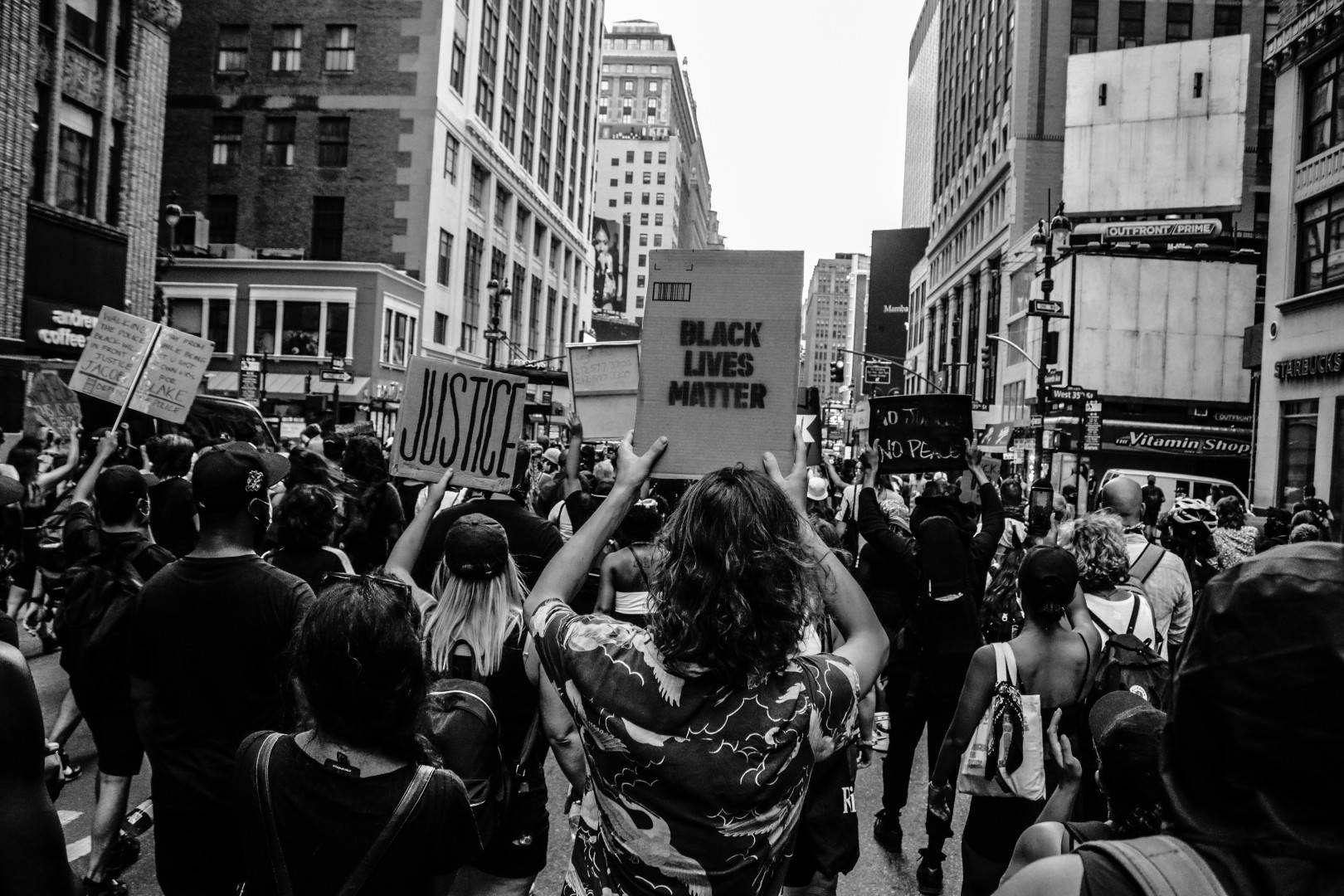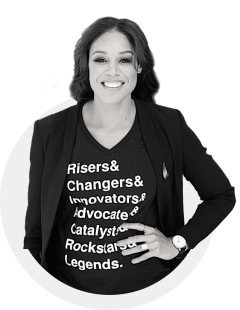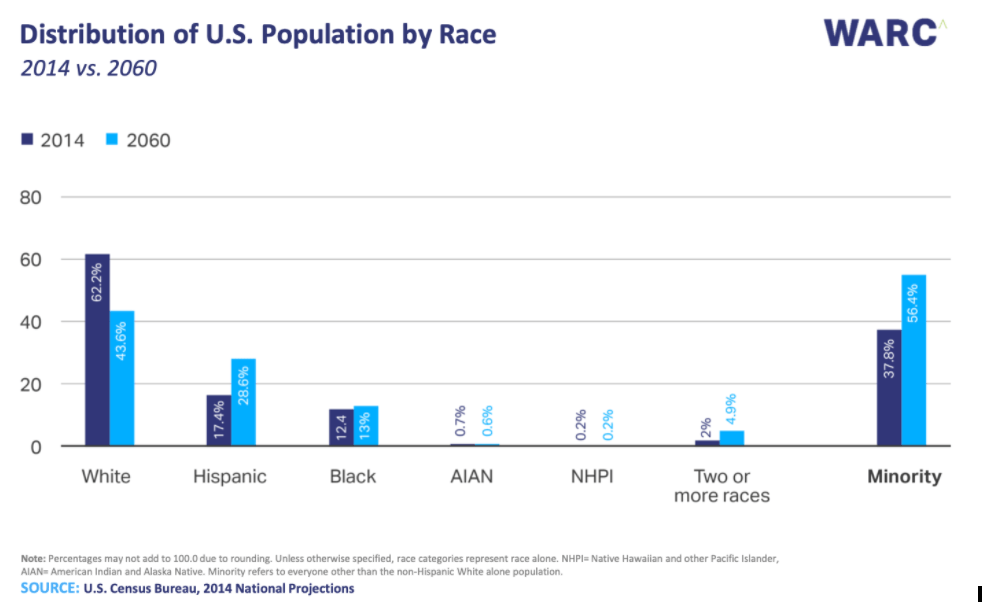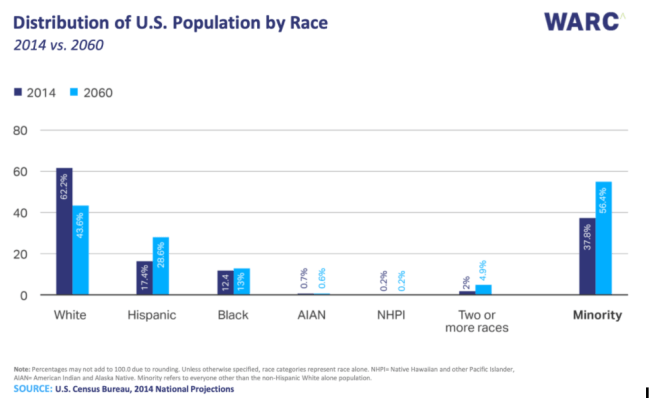Americans have lived through an unusually turbulent year - facing a compounding of crises - creating a more conscious, discerning and demanding public. The murder of George Floyd ignited a racial reckoning that drew attention to systemic inequity, racial injustice and enmity towards Black communities. COVID-19 has further proven that our most vulnerable communities will face irreparable harm and set back if we do not participate in addressing the injustice within our own organizations.

The events of 2020 unveiled many broken systems of justice, but it also fixed our vision. With rising inequality, environmental threats and the long, 100-year road to gender parity, we, as a nation, need to redefine what it means to be a modern, thriving economy. And, we as an industry, need to redefine what it means to be a great place to work, a partner of choice and a force for good.
Inside-out approach: Demanding better for ourselves
I joined dentsu because of our shared mission: to champion meaningful progress - for people, society and businesses. Given my recent appointment and our company’s renewed mission, I’d like to first offer a view into how we’re thinking about making equity a reality at dentsu.

Creating a true
Return on Inclusion (ROI) framework.
To truly be accountable to our people, clients and partners, we’re creating a Return on Inclusion framework that aims to raise and measure diversity across the board for better business and cultural outcomes. We’re scoring ourselves on transparency, representation (employees, suppliers, clients), our investment in the community (diverse suppliers, organizations, minority owned and operated media, etc.) and our fair and inclusive policies and practices.
belong in a corner.
We’re elevating equity to where it rightfully belongs - across all functions. We’re not striving for equity-first, but rather equity-throughout, which can only happen when the practice of diversity, equity and inclusion permeates all decisions about our people, business and societal impact.
From supplier diversity, investing in BIPOC communities and building a diverse pipeline of talent to ensuring every creative and media briefing process embraces expressions of diversity, we’re building a holistic DEI system.
The ultimate path to creating belonging is cultural fluency. Let’s look at the data.
In 2014, the U.S. was 62% White; by 2060, that group will make up only 44% of the population. In 2014, minorities made up 38% of the country, but by 2060 they will firmly be in the majority, at 56%. The makeup of our talent population, consumers and clients is changing - and that means committing to cultural fluency.
To embrace all possible expressions of our identities, we need to continue building on the foundation of learning, and in some cases, unlearning. The way we see it, all of our learning, development and leadership initiatives will have cultural competency because that is what will make us better leaders, partners and marketers.
We've seen the industry prioritize and deprioritize communities and issues. We saw momentum around issues like equal pay, gender parity, women in leadership, trans benefits, parental leave, Black and Latinx or Hispanic representation, all-gender bathrooms, but they have faced stops and starts, progress and regression, and a hyper focus on issues without addressing the intersectional implications.
While some women, some members of the LGBTQIA+ community have seen advances and benefited from the work of DEI leaders, champions, allies, resources and programs, this work has been done without factoring in race. We will never be a fair, just and equitable industry until we look at these problems through an intersectional lens.
“Colorless diversity” has plagued the tech industry, and we’re experiencing the same symptoms in our industry. According to a 4As study, over 70% of employees in advertising are White. Change starts from within. If brands don’t have diversity reflected in their own teams, they cannot authentically support causes in the right ways. Commit to diverse teams and diverse leadership. Foster an inclusive work culture that listens to, supports and celebrates diverse perspectives.


Today’s consumers are paying more attention to how brands respond in times of crisis. 46% of consumers report paying MORE attention to brand communications than they did pre-COVID (Source: Dentsu Navigator). And silence comes with a price: 56% of consumers say they have no respect for businesses that remain silent on important issues (Source: Edelman Trust Barometer). Brands’ swift and increasingly direct responses to the protests reflect consumer expectations for brands to weigh in on issues of racial equality.
I want to acknowledge that entering the conversation is not easy – but marketers have an opportunity to exercise moral leadership and use their platform for real change. While brands are facing a highly polarized cultural and political environment and face likely backlash as they enter the conversation, consumers increasingly find it unacceptable for brands to stay silent and view “neutrality” as a cop-out.
Though the crises of 2020 lay bare the structural inequalities that plague our nation and industry, they are also catalysts for rebuilding ‘a now normal’ that is safe, fair and dignified for all people. No other work yields the deep rewards that come from creating belonging.
dentsu Americas
“The arc of the moral universe is long, but it bends toward justice.”




Americans have lived through an unusually turbulent year - facing a compounding of crises - creating a more conscious, discerning and demanding public. The murder of George Floyd ignited a racial reckoning that drew attention to systemic inequity, racial injustice and enmity towards Black communities. COVID-19 has further proven that our most vulnerable communities will face irreparable harm and set back if we do not participate in addressing the injustice within our own organizations.
The events of 2020 unveiled many broken systems of justice, but it also fixed our vision. With rising inequality, environmental threats and the long, 100-year road to gender parity, we, as a nation, need to redefine what it means to be a modern, thriving economy. And, we as an industry, need to redefine what it means to be a great place to work, a partner of choice and a force for good.
Inside-out approach: Demanding better for ourselves
I joined dentsu because of our shared mission: to champion meaningful progress - for people, society and businesses. Given my recent appointment and our company’s renewed mission, I’d like to first offer a view into how we’re thinking about making equity a reality at dentsu.

belong in a corner.
We’re elevating equity to where it rightfully belongs - across all functions. We’re not striving for equity-first, but rather equity-throughout, which can only happen when the practice of diversity, equity and inclusion permeates all decisions about our people, business and societal impact.
From supplier diversity, investing in BIPOC communities and building a diverse pipeline of talent to ensuring every creative and media briefing process embraces expressions of diversity, we’re building a holistic DEI system.
The ultimate path to creating belonging is cultural fluency. Let’s look at the data.

In 2014, the U.S. was 62% White; by 2060, that group will make up only 44% of the population. In 2014, minorities made up 38% of the country, but by 2060 they will firmly be in the majority, at 56%. The makeup of our talent population, consumers and clients is changing - and that means committing to cultural fluency.
To embrace all possible expressions of our identities, we need to continue building on the foundation of learning, and in some cases, unlearning. The way we see it, all of our learning, development and leadership initiatives will have cultural competency because that is what will make us better leaders, partners and marketers.
Creating a true
Return on Inclusion (ROI) framework.
To truly be accountable to our people, clients and partners, we’re creating a Return on Inclusion framework that aims to raise and measure diversity across the board for better business and cultural outcomes. We’re scoring ourselves on transparency, representation (employees, suppliers, clients), our investment in the community (diverse suppliers, organizations, minority owned and operated media, etc.) and our fair and inclusive policies and practices.
We've seen the industry prioritize and deprioritize communities and issues. We saw momentum around issues like equal pay, gender parity, women in leadership, trans benefits, parental leave, Black and Latinx or Hispanic representation, all-gender bathrooms, but they have faced stops and starts, progress and regression, and a hyper focus on issues without addressing the intersectional implications.
While some women, some members of the LGBTQIA+ community have seen advances and benefited from the work of DEI leaders, champions, allies, resources and programs, this work has been done without factoring in race. We will never be a fair, just and equitable industry until we look at these problems through an intersectional lens.
“Colorless diversity” has plagued the tech industry, and we’re experiencing the same symptoms in our industry. According to a 4As study, over 70% of employees in advertising are White. Change starts from within. If brands don’t have diversity reflected in their own teams, they cannot authentically support causes in the right ways. Commit to diverse teams and diverse leadership. Foster an inclusive work culture that listens to, supports and celebrates diverse perspectives.

Today’s consumers are paying more attention to how brands respond in times of crisis. 46% of consumers report paying MORE attention to brand communications than they did pre-COVID (Source: Dentsu Navigator). And silence comes with a price: 56% of consumers say they have no respect for businesses that remain silent on important issues (Source: Edelman Trust Barometer). Brands’ swift and increasingly direct responses to the protests reflect consumer expectations for brands to weigh in on issues of racial equality.
I want to acknowledge that entering the conversation is not easy – but marketers have an opportunity to exercise moral leadership and use their platform for real change. While brands are facing a highly polarized cultural and political environment and face likely backlash as they enter the conversation, consumers increasingly find it unacceptable for brands to stay silent and view “neutrality” as a cop-out.
Though the crises of 2020 lay bare the structural inequalities that plague our nation and industry, they are also catalysts for rebuilding ‘a now normal’ that is safe, fair and dignified for all people. No other work yields the deep rewards that come from creating belonging.
dentsu Americas
“The arc of the moral universe is long, but it bends toward justice.”